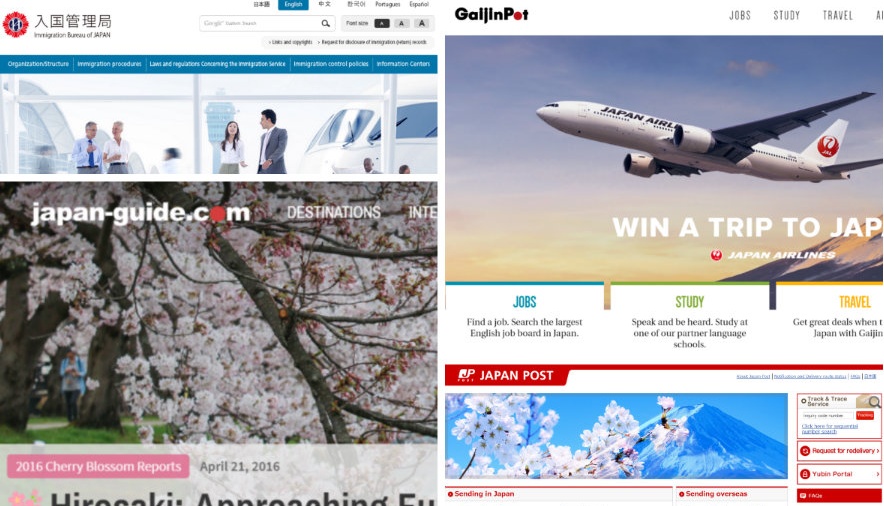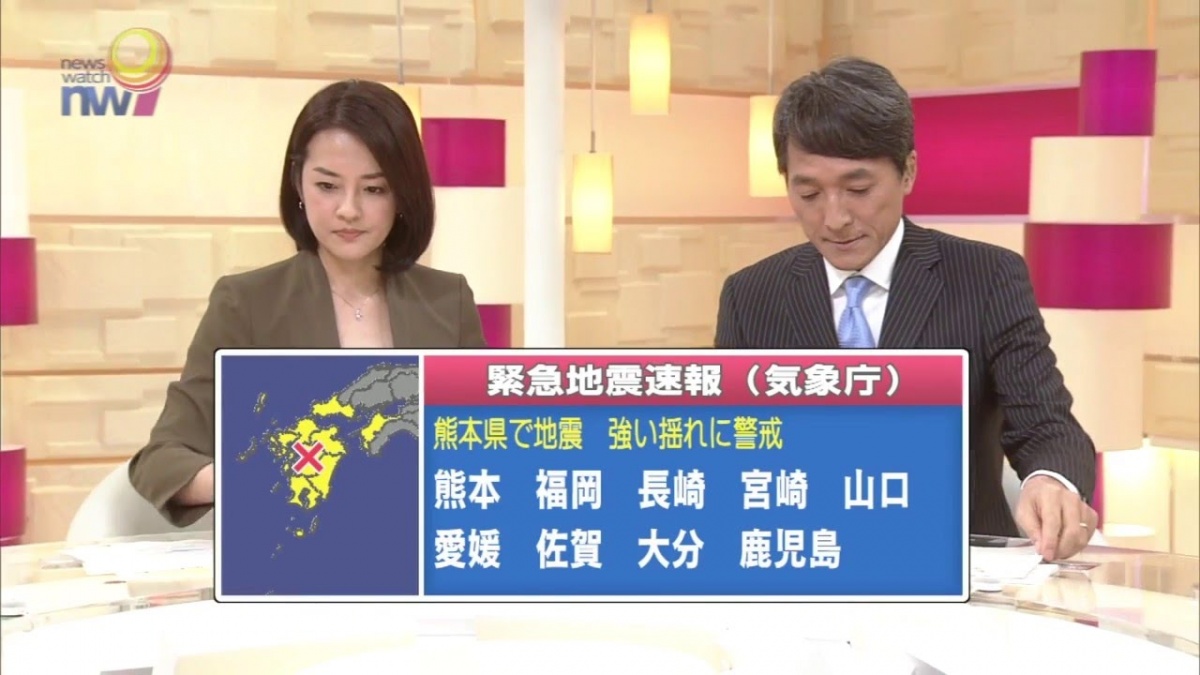8 Vital Sites when You Arrive in Japan

When you arrive in Japan as a resident, there are a number of sites you're going to need to get oriented—though some of these are helpful for tourists as well!
By Michael Kanert8. Japan Meteorological Agency
Yes, this is a weather page. But with typhoons and earthquakes being relatively regular occurrences in Japan, the Japan Meteorological Agency is far more valuable than a typical weather report. You can check here for updates on typhoons, earthquakes and volcano warnings, all in English.
7. Japan Post
This is a site you might only need once, but it's good to know it's there when you want to send something home. There's plenty of information in English, with the most important section likely being the description of the "Yu-pack," or parcel delivery service.
You can also make requests for re-delivery of items that arrived while you were out. Don't panic at all the Japanese at the top of the page; just scroll down. It's a little confusing, but the parts you need to fill in mostly have subtitles. And if that fails, you can just call the number on the delivery slip in your mailbox.
Bricks-and-mortar Japan Post offices also enable you to send money home, and you can use a number of overseas credit cards to withdraw money at their ATMs. You can even set up a bank account there!
6. Immigration Bureau of Japan
This is another site you won't need often, but it will be important when you do need it. You can use it to check immigration procedures and look up your nearest immigration office when you need to renew your visa.
5. Your Local City Page
Some cities and regions have some very thorough guides for foreign residents. The best will offer emergency information, medical and health services, local tax outlines and more. Do a search for your city or region and see what's available!
4. SnowJapan
Getting into fun stuff, if you ski or snowboard, this is pretty much the only page you need. SnowJapan has incredibly detailed, up-to-date information on almost every ski and snowboard resort in Japan, including snow accumulation, lift information and access guides.
The site also has an extensive travel guide to help you get around Japan, whether you're visiting in winter or summer!
3. Events Listings Sites

http://metropolisjapan.com/event/inka-michiyo-yagi-tatsuya-yoshida-yuji-katsui/
This one is tricky, as there's no real national listing of all events around the country (The Japan Times makes a valiant attempt here, but it's only partly complete, and the filters only work some of the time). Otherwise, you can find listings of many major festivals and museums at Japan Attractions, and if you want a list of the biggest annual events across the country, you can check the JNTO here.
For other events, your best bet is to look for events listings sites in your city. Good sources for Tokyo are Time Out Tokyo, which lists a number of major events, and Tokyo Gig Guide, which covers predominantly indie music. In Osaka, Kansai Scene is the standard place to check.
You should also look at Bandsintown for major concerts almost anywhere in Japan—the only hitch is there's no city search, so you have to change the city name in the URL to search for your desired location (Tokyo, Osaka, Sapporo and Sendai definitely work!).
2. Gaijinpot
Gaijinpot is basically your standard job site in Japan. While it's not the only one (check here for more), it's the default starting place for most people looking for work.
The most common jobs are for eikaiwa (English conversation) teachers and Assistant Language Teachers (ALTs), but you can find work in other fields as well.
The site also has well-frequented forums that you can check for answers to common questions (and the inevitable arguments), plus travel, classifieds and very basic apartment search services.
1. Japan-Guide
If you've searched for just about any travel destination in Japan, you've probably seen Japan-Guide. Founded by Stefan Schauwecker in 1996, it includes up-to-date information on almost any travel spot you could hope to find.
Bonus: NHK
This isn't a website, but rather Japan's public national TV broadcaster. NHK News 7 and News Watch 9, which are broadcast at 7 p.m. and 9 p.m., respectively, have bilingual audio tracks that you can watch in English if you hit the "bilingual" (音声切換, literally "audio change") button on your remote.
More importantly, NHK and all the major Japanese terrestrial channels will run weather forecasts in the morning, including updates on incoming typhoons, which will be interpreted visually. Big typhoons will often be displayed on the side of the screen almost continuously, which will allow you to track their progress in real time.
The same channels will also put up a news ticker whenever a major earthquake strikes, listing the magnitude in each affected region (in kanji). While a simple ticker announcement generally indicates a relatively small or distant quake, if the regular broadcast is pre-empted by a graphic of Japan, it usually means the quake was quite large. If part of the coast is highlighted, this indicates the area subjected to a tsunami warning. NHK tends to be the fastest on these major reports, so it's a good place to check when you want quick information.




